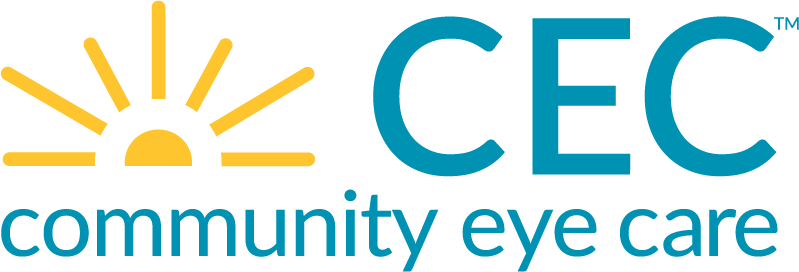
Like the rest of our bodies, our eyes have different needs as we age. That's why it's essential to know which vision changes are a normal part of aging and when something more serious may need the attention of an eye doctor.
Vision Changes in Your 20s and 30s
Generally, adults in their 20s and 30s have healthy eyes and can effectively treat vision problems with corrective eyeglasses or contact lenses. But it's never too early to start preserving your eye health! During this stage of life, prevention is vital.
- Protect your healthy eyes from harmful everyday elements, like UV rays and cigarette smoke, which can increase your risk of age-related macular degeneration.
- Be aware of occupational hazards, like long hours in front of computer monitors, which can lead to eyestrain and Computer Vision Syndrome.
- Schedule an annual eye exam to keep your prescriptions up-to-date and avoid long-term damage.
Vision Changes in Your 40s
While preventative measures are vital to maintaining healthy eyes, vision changes are a natural part of aging. Presbyopia, a decline in your ability to focus due to the hardening of the lenses in your eyes, may become more noticeable in your 40s, making it more difficult to see while reading or doing close work.
- In its earliest stages, merely adjusting the distance between your eyes and your reading material may help compensate for the effects of presbyopia.
- When adjusting your viewing range is no longer an option, corrective lenses, such as reading glasses or multifocal contact lenses, will be your best bet to help you see more clearly.
Vision Changes in Your 50s
As we age, the risk of contracting several age-related eye diseases such as glaucoma, cataracts, and macular degeneration will increase.
- Monitor your vision and see your eye doctor if you notice any significant vision changes.
- Have your eyes checked after other major health changes, such as a hypertension or diabetes diagnosis.
- While there is no cure for macular degeneration, healthy habits like taking multivitamins and eating foods rich in lutein and antioxidants can help slow the process down.
Vision Changes in Your 60s and Beyond
While cataracts are technically classified as an age-related eye disease, the condition is so common among older individuals that they're considered a normal part of aging.
- If cataracts start to impair your everyday activities, cataract surgery, replacing your natural lens with an artificial lens, is a safe and effective way to restore your vision.
- Visit your optometrist at least once a year for a comprehensive eye exam and to screen for common age-related eye diseases.
No matter your age, constantly monitor your vision changes, make healthy lifestyle and dietary choices, and see your eye doctor for yearly eye exams to keep your eyes healthy for years to come!
Information received through CEC vision care channels is for informational purposes only and does not constitute medical advice, medical recommendations, diagnosis, or treatment. Always seek the advice of your eye doctor, physician, or another qualified health provider with any questions you may have regarding a medical condition.
CEC is a wholly-owned subsidiary of VSP Vision.
Sources: American Optometric Association (AOA), American Academy of Ophthalmology (AAO), The Vision Council (TVC), National Eye Institute (NEI), and Centers for Disease Control and Prevention (CDC).
Back to All

